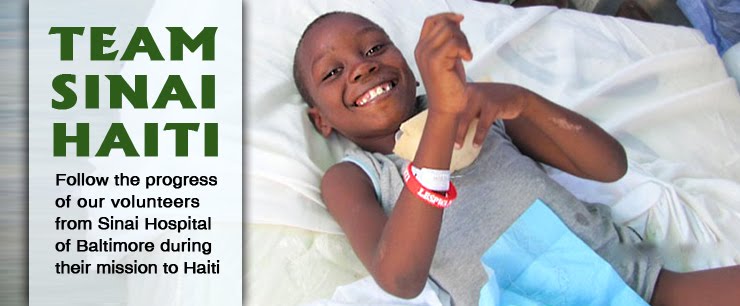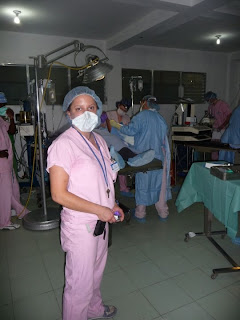September 11, 2011
Watching the various 9-11 memorial services on television today, I am moved to write down on paper, or more correctly, on my laptop, some of my own thoughts and memories of this earth shattering event that is still so fresh in the memories of anyone alive today who was over the age of 6 or so on September 11, 2001. Nine-eleven is, after all, the prototype of one of those momentous historical events that are seared on our collective memories, branded into our collective cerebral cortex. There are certain news events for which we can remember not only the event, but also our personal location when we first heard the news of the event. For me, the list starts with assassination of President Kennedy, and continues on to the explosion of the space shuttle Challenger, the opening salvos of Gulf War I, the reading of the O.J. Simpson verdict, the news of Princess Diana’s death, 9-11, and more recently, the Haiti Earthquake of 1/12/2010. It is curious what elevates an event to that level in one’s consciousness. After all, how can one compare the importance of the death of a princess with the 300,000 deaths from Haiti's 7.0 magnitude earthquake, or to the macabre deaths, unfolding before our very eyes on live television, of 2,977 innocent victims who woke that fateful September 11 morning, had their breakfast, coffee, and went to work, or to the airport to catch a flight. (The nineteen perpetrators of this outrage do not deserve to be included in the role of the dead. ) The truth is, of course, that there is no comparison, and while we may remember less important events with equal clarity, there is nonetheless a special place in the pantheon of these news events that we not only remember, but also remember where we were when we first heard the fateful news. I will leave it to the psychologists to explain why certain individuals may so vividly remember where they were upon hearing about 9-11 but not, for example, another, albeit smaller, terrorist event of the Oklahoma City bombing in 1995.
Nine-eleven changed us forever, and presented us with a fait accompli, a paradigm shift on how we relate to the world, how we pass through airport security, and how we will live for the next century. What about those Americans who have birthdays or anniversaries on 9-11. Can one celebrate on such a day? One can’t change the day of one’s birth, so we have no choice but to recognize our personal joys, albeit in a subdued fashion, while simultaneously paying homage to the tragedy that will eternally be associated with this event.
For those of us at the Rubin Institute for Advanced Orthopaedics, we spent the evening before 9-11 celebrating the grand opening of our newly minted Institute. We had actually begun clinical work at Sinai Hospital a few months earlier in mid July, but planned our official opening party to coincide with our 11th annual (now in its 21st year) Baltimore Limb Deformity Course. September 10, 2001 was a beautiful Sunday night, and the hospital team had done an incredible job at preparing a gala event, complete with a tent in the parking lot, great food, speeches, and presentations. Hundreds came, including many of our course attendees, relatives and friends from out of town. (Little did they know that exiting Baltimore by plane would be virtually impossible the following day). The next day, that clear autumn Monday morning of September 11, 2001, was the final day of our course. I remember the sequence of events as clearly today as if it happened yesterday. I was performing a live demonstration surgery, broadcasting by closed circuit TV to our attendees in the hospital auditorium. In the afternoon, we planned to bring everyone by bus downtown to the cadaver laboratory at the medical school, for a session to teach them various surgical approaches and procedures on cadavers. My morning surgical case was a supramalleolar osteotomy for malunion, using an external fixator. The closed circuit connection from the O.R. to the auditorium was not working properly, and at various times we had audio but not video, and vice versa. The course attendees were trying to help fix the audiovisual connection on their end, and wound up fiddling with the channels on the TV, soon landing on the live broadcast of the Twin Towers after the attack, so indelibly burned into our brains. At that point, one of the surgical technicians ran into the O.R. and shouted that New York was being attacked by terrorists. Rumors soon started to fly about Washington, and Annapolis. The attendees remained transfixed by the events unfolding on television, while we upstairs in the O.R. concentrated on expeditiously finishing the surgery. On completion of the surgery, I went down to the auditorium. Given the uncertainty and magnitude of the unfolding events, we announced that the cadaver laboratory exercise was cancelled, and scrambled to help our many out of town guests find accommodations. Indeed, there was no way to get down to the medical school, as the State Police closed Route 83 due to rumors of additional bombs in Maryland. Most of our course attendees were out of towners, many from outside the continental US. All those with flights scheduled that day and for the days to follow were now stranded.
At our home, my wife and I took in three attendees, one from Austria, one from Uganda, and one from New Zealand. The subsequent days and weeks morphed into a prolonged sleepover that only ended three weeks later when our last guest was able to fly home. Days were spent in incredulous awe, gathered around the television, with its 24 hours news coverage of 9-11 and its aftermath. Eventually, life returned to normal, though not quite the same for an entire generation.
 Fast forward to ten years later….our institute has grown from the original four surgeons to now eight. We have become successful beyond our expectations. On a sad note, Jacques Rubin, our major benefactor and namesake, died at the relatively young age of 71 last week. He was a kind and generous man who achieved financial success from his prescient involvement in the biotech industry. His innate philanthropic personality led him to donate to charities even during the down times in his life. He is sorely missed by his friends and family. Now, on this tenth anniversary of the establishment of the Rubin Institute for Advanced Orthopedics, should we celebrate? Should we celebrate despite the death of Jacque Rubin, despite the forever recurrent pairing of the RIAO founding with the tragedy of 9-11? Common sense and human nature and the American spirit would dictate “yes” to these questions. Despite our losses, despite the sorrow, our lives go on. Our mission goes on, and our lives and the lives of our children and loved ones continue on. We can and should celebrate our 9-11 birthdays, our 9-11 wedding anniversaries, and our 9-11 important life events, including the opening of the Rubin Institute for Advanced Orthopedics. It is incumbent on us, however, to also simultaneously remember and pay tribute to the 2,977 souls who perished on that fateful day. For the foreseeable future, the current generation will look back to that day in respectful awe, much as my father’s generation looks back on Pearl Harbor Day. Eventually, these memories may be surpassed by future calamities, but for those of us who lived through those dark days following September 11, 2001, we will share a collective, life altering experience for the rest of our lives. It is incumbent on us to pass this memory on to our children, and they to the successive generations, to preserve 9-11 as a forever special and meaningful day in our nation’s history.
Fast forward to ten years later….our institute has grown from the original four surgeons to now eight. We have become successful beyond our expectations. On a sad note, Jacques Rubin, our major benefactor and namesake, died at the relatively young age of 71 last week. He was a kind and generous man who achieved financial success from his prescient involvement in the biotech industry. His innate philanthropic personality led him to donate to charities even during the down times in his life. He is sorely missed by his friends and family. Now, on this tenth anniversary of the establishment of the Rubin Institute for Advanced Orthopedics, should we celebrate? Should we celebrate despite the death of Jacque Rubin, despite the forever recurrent pairing of the RIAO founding with the tragedy of 9-11? Common sense and human nature and the American spirit would dictate “yes” to these questions. Despite our losses, despite the sorrow, our lives go on. Our mission goes on, and our lives and the lives of our children and loved ones continue on. We can and should celebrate our 9-11 birthdays, our 9-11 wedding anniversaries, and our 9-11 important life events, including the opening of the Rubin Institute for Advanced Orthopedics. It is incumbent on us, however, to also simultaneously remember and pay tribute to the 2,977 souls who perished on that fateful day. For the foreseeable future, the current generation will look back to that day in respectful awe, much as my father’s generation looks back on Pearl Harbor Day. Eventually, these memories may be surpassed by future calamities, but for those of us who lived through those dark days following September 11, 2001, we will share a collective, life altering experience for the rest of our lives. It is incumbent on us to pass this memory on to our children, and they to the successive generations, to preserve 9-11 as a forever special and meaningful day in our nation’s history.--John Herzenberg, MD












































